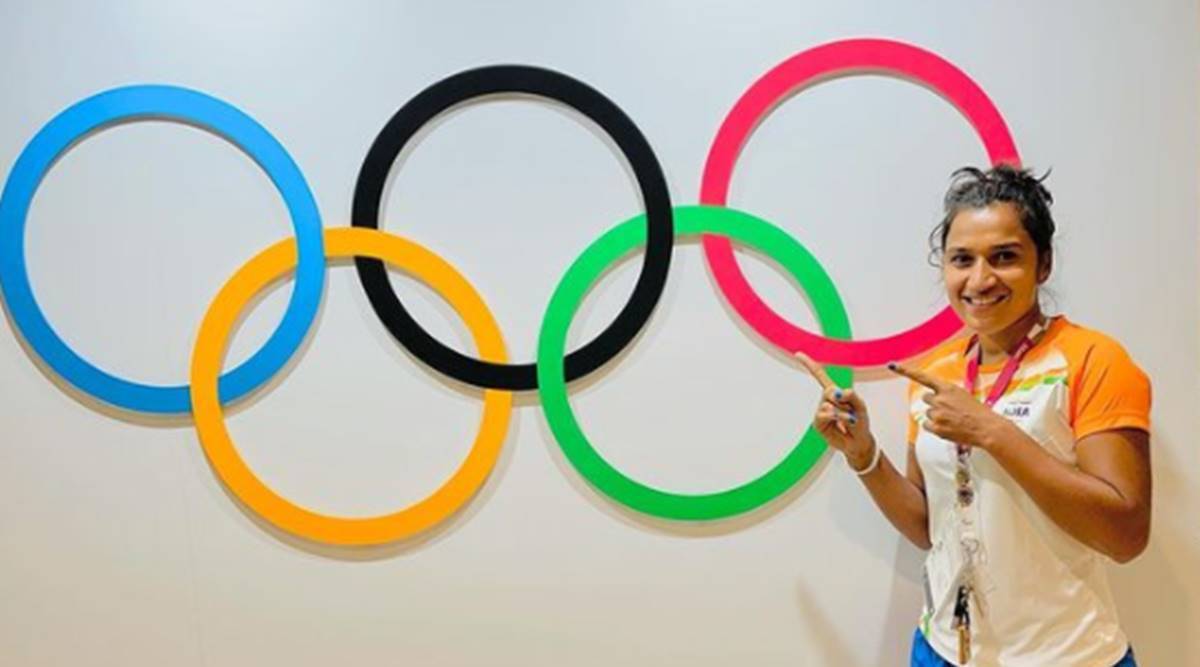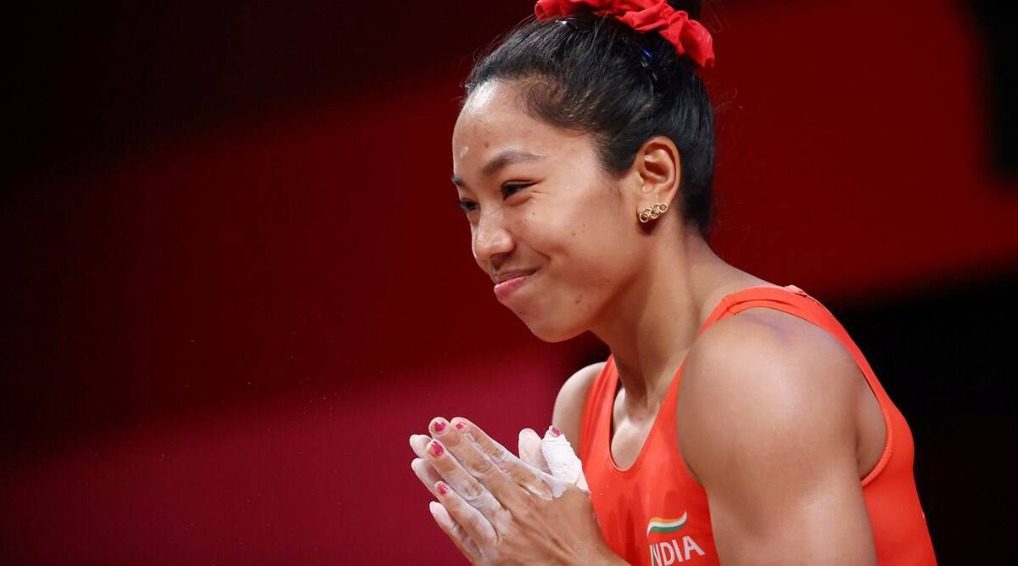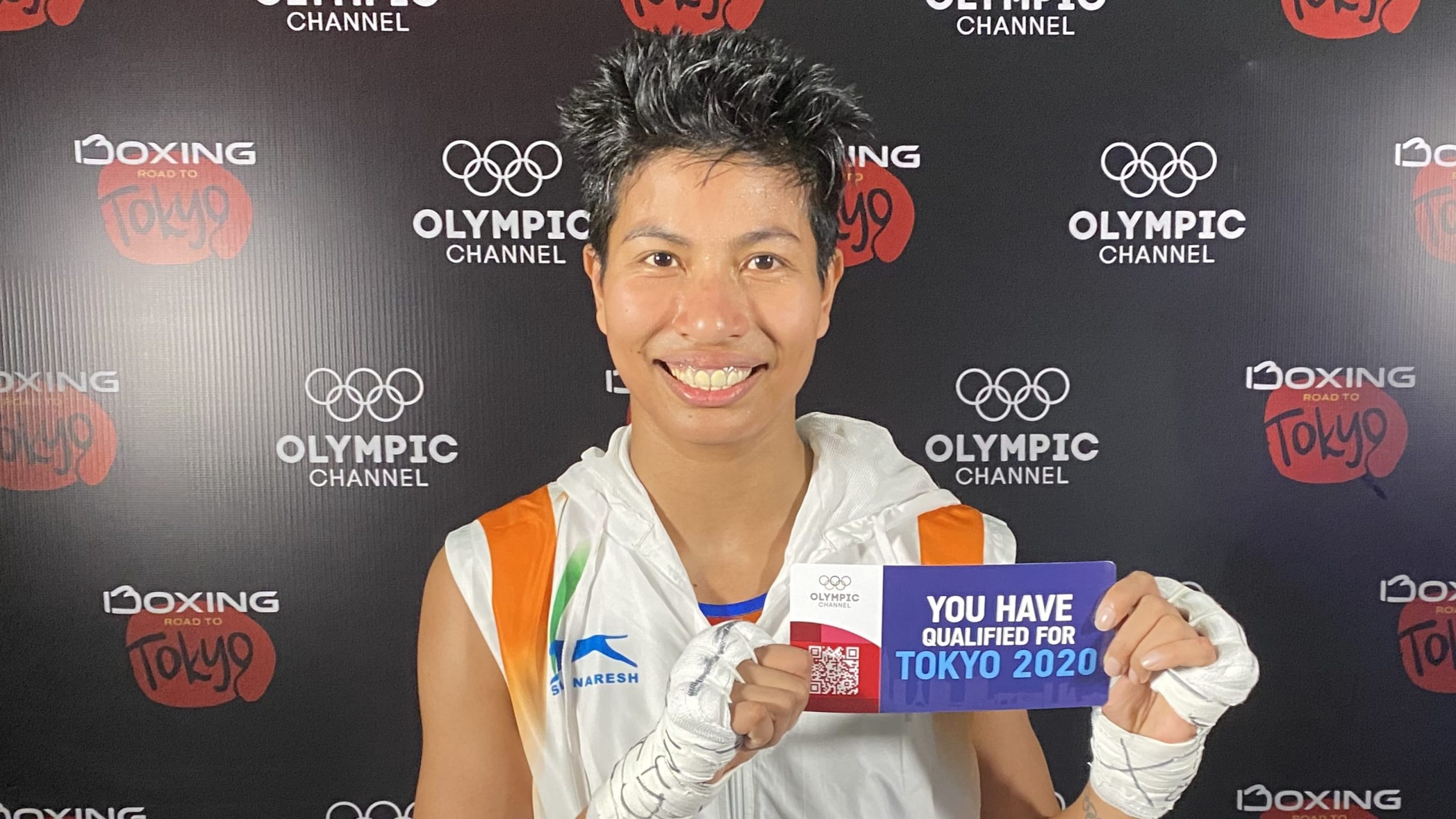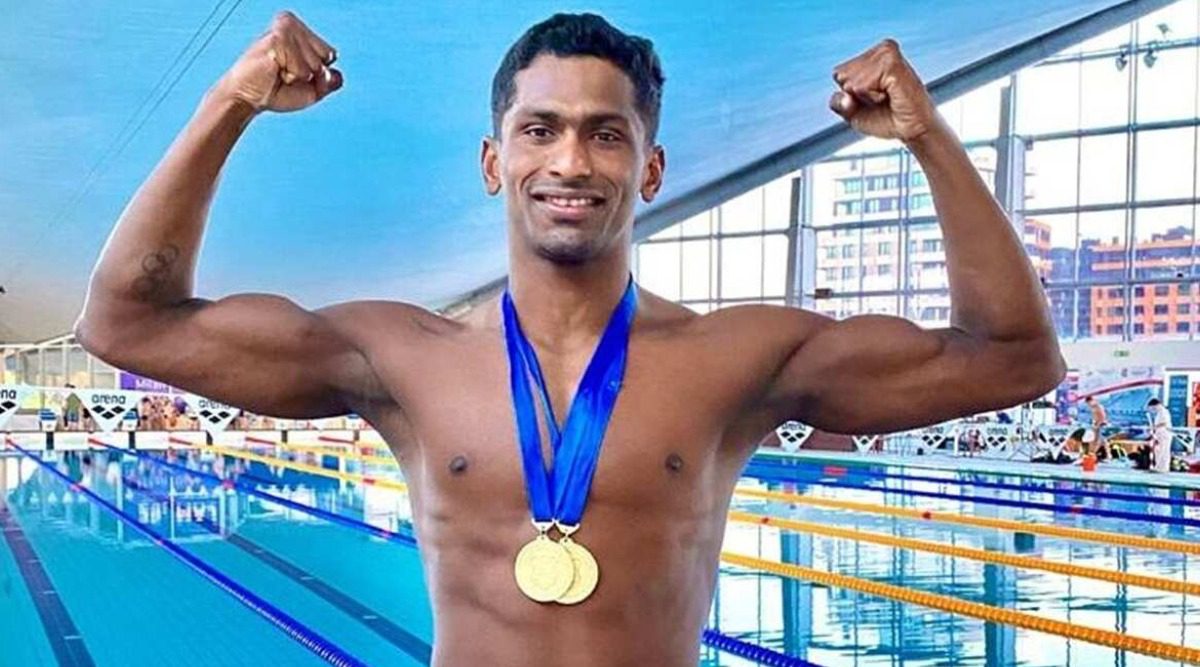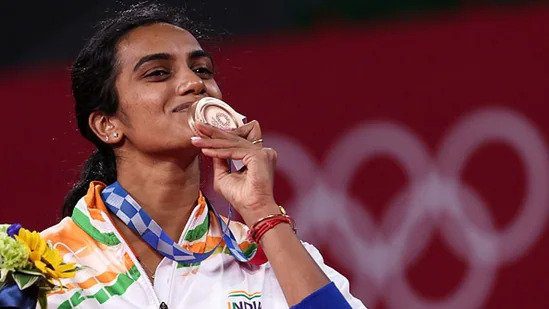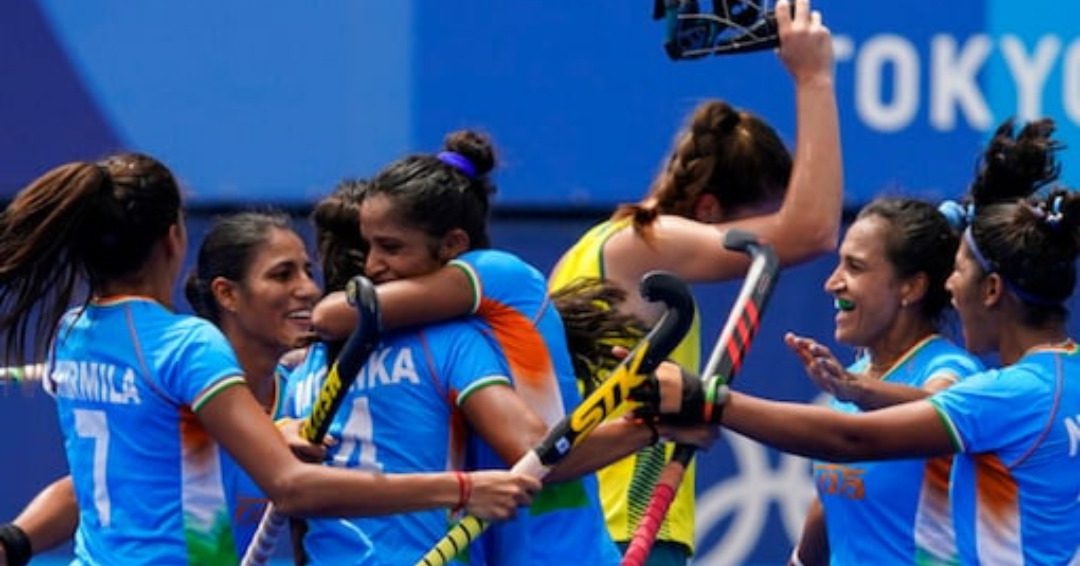(August 3, 2021; 5.45 pm) In April this year, when the Indian women’s hockey team was training hard for their Olympics outing, disaster struck: six of the team members had tested positive for COVID-19 and were forced to go into isolation for two weeks. One of the six was the team captain Rani Rampal. The 26-year-old had just recovered from a bout of Typhoid and found the isolation exhausting – physically and mentally. However, the gritty captain, who has played over 200 matches was determined to lead her girls to Olympics glory. The team rallied and stayed committed to their goal: making it to the Quarter Finals of the Tokyo Olympics. They were determined to overcome the Rio debacle where they had finished last.
On August 2 though, the team did more than that. They beat the Australian team, which until then had been touted to be a top medal contender, and sailed into the semi-finals – a huge first for the Indian women’s hockey team. The team hadn’t made the Olympics cut for 36 years until Rio.
Sorry family , I coming again later 😊❤️ pic.twitter.com/h4uUTqx11F
— Sjoerd Marijne (@SjoerdMarijne) August 2, 2021
For Rampal though, this is one of the many firsts that she has to her credit. Back in 2010, she became the youngest player in the national team at the age of 15. In 2009, she played in the Champion’s Challenge Tournament in Kazan, Russia, where she helped team India win by scoring 4 goals in the finals.
Working her way up
Looking forward to a memorable games 🇮🇳🏑#1daytogo #bharatkisherniya #tokyoolympic2020 pic.twitter.com/sguiG8CF6f
— Rani Rampal (@imranirampal) July 22, 2021
Born in 1994 in Haryana’s Shahabad Markanda in a poor family, sports was far from Rampal’s mind. The family’s means were less than meagre: her father was a pushcart puller and mother a house maid. They could barely afford two square meals a day. But nothing could contain Rampal’s love for hockey which began when she spent hours watching the sport at a hockey academy near her house. Although she really wanted to play, her father couldn’t afford to buy her a hockey stick. Rampal tried to convince the coach at the academy to train her, but he turned her away saying she looked malnourished and he doubted she could last a practice session.
“So, I found a broken hockey stick on the field and began practicing with that – I didn’t have training clothes, so I was running around in a salwar kameez. But I was determined to prove myself. I begged the coach for a chance,” Rampal told Humans of Bombay.
Hurdles gallore
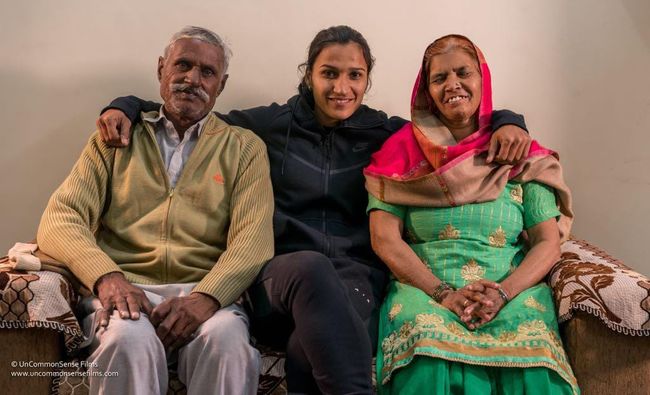
Rani Rampal with her parents
When she finally managed to convince the coach, she was faced with objection from her family. They believed a woman’s place was in the house doing chores. However, seeing her determination, they reluctantly agreed. Since the family didn’t even own a clock, Rampal’s mother would stay up till the crack of dawn to wake her up for her practice and then go to bed. At practice, each player was required to bring half a litre of milk; Rampal’s family couldn’t meet the requirement. So, she would dilute whatever milk they could manage with water and gulp it down so she could attend practice. Along the way, she also had help from people like her coach, who would buy her shoes and hockey kits. He also let her live with his family and took care of her diet so she had the right nutrition to pursue the sport.
Rampal’s determination and conviction paid off when she qualified for the national team. And there has been no looking back ever since. She was instrumental in winning the silver medal for team India at the 2009 Asia Cup. In 2010, she was nominated for the FIH Women’s Young Player of the Year Award – the only Indian so far. That same year, at the Women’s Hockey World Cup in Argentina, she scored a total of seven goals helping place India in the ninth position in World Women’s hockey rankings. In 2016, she was awarded the Arjuna award. She led team India in the 2018 Asian Games where they won a silver medal.
In 2020 she was conferred the country’s highest sporting honor the Rajiv Gandhi Khel Ratna (the first woman hockey player to receive the recognition) as well as the fourth highest civilian award the Padma Shri. At the time though, her family didn’t know the significance of these honors. “My parents are not that educated. So they are not aware of these awards. When I explained to my father that I’m the first woman hockey player to receive it, he got emotional,” she told The New Indian Express.
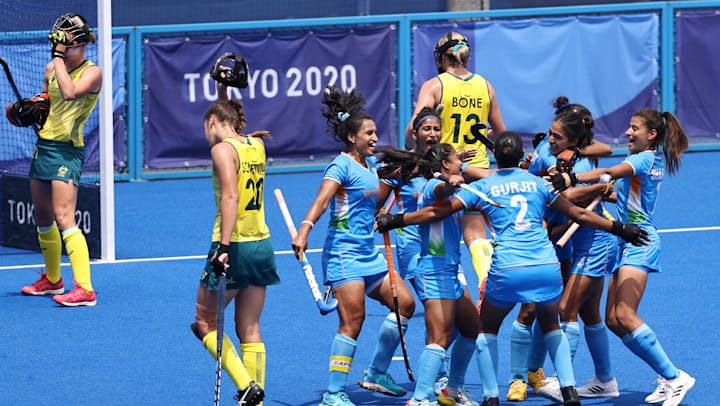
Rani Rampal and her team celebrate after their win against Australia at the Tokyo Olympics
Funnily enough, when she’d first started off in the sport she didn’t know much about the Olympics. So when team India didn’t qualify for the Olympics in 2008 and she saw some of the senior players crying, she wondered why. As she grew with the sport, she began to understand a lot more and aspire for more too. In an interview with Scroll she said,
“If there’s no pressure, you won’t perform. Then you tend to take it easy. But when there’s pressure, you realize the responsibilities you carry and you make sure you are always one step ahead.”
Dreams fulfilled
When she won her first tournament, she earned ₹500 as a reward.
“I gave the money to papa. He hadn’t ever held so much money in his hands before. I promised my family, ‘One day, we’re going to have our own home’.”
She was finally able to fulfill that dream in 2017 when she bought her parents their dream home. “We cried together and held each other tightly! And I’m not done yet; this year, I’m determined to repay them and Coach with something they’ve always dreamed of- a gold medal from Tokyo,” she said.
Editor’s Take
India’s women athletes are making the country proud at the Tokyo Olympics and Rani Rampal is one of them. From battling poverty to carving a niche for herself in the Indian hockey team to leading it to great heights is no easy feat. But this Padma Shri awardee is not short on grit and determination. The Indian women’s hockey team had not made the Olympic cut for 36 years until the Rio Olympics. While that outing proved to be dismal for the team, they are now determined to script history at the Tokyo Olympics under Rani Rampal’s captaincy.

